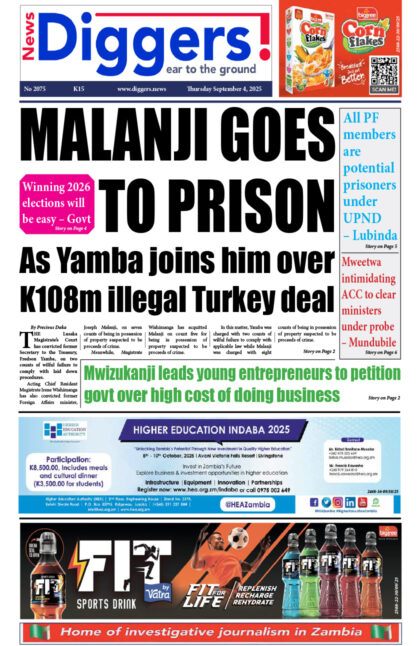The subject of “fake news”, those who spread it, and how to identify it has long been a topic of discussion amongst members of the public even before the advent of the internet. Whether the news is spread by word of mouth or on online platforms, the speed with which it is spread and its ability to remain relevant long after its initial creation cannot be denied. The ease with which it is spread across different forms of media both knowingly and unknowingly unfortunately allows it to compete with, and sometimes overtake, well researched reports from reputable media houses. Is the publication of “fake news” a crime? In the case of Chipenzi and 2 others v the People HPR/03/2014 the High Court considered whether the offence referred to as “false news” under section 67 of the Penal Code was constitutional.
In that case, McDonald Chipenzi, Richard Sakala, and Simon Mwanza were charged with, ‘publishing a false article with intent to cause fear and alarm to the public or disturb public peace’. The accused challenged their arrest on the grounds that the provision on “false news” in section 67 of the Penal Code was an unconstitutional constraint to the right to freedom of expression as guaranteed to all Zambians by the Bill of Rights. The Court considered the provisions of section 67 and stated as follows:
“…the prohibition against publishing false news affects not only those caught and prosecuted, but also those who may refrain from saying what they would like to because of the fear that they will be caught… Section 67 makes possible conviction for virtually any statement which does not meet the majority definition of truth and lends force to the argument that the law could be used or abused in circular fashion essentially to permit the prosecution of news which is unpopular in the ears of those in authority.”
In its judgment, the High Court rejected an argument that section 67 of the Penal Code only prevented false news that could potentially have a negative impact or disrupt the peace. The Court was the of the view that an opinion of what could or could not be the outcome of the false news should not be a basis on which the law is enforced. Put simply, the court did not agree that a person should be arrested simply because other people think that their words would have a negative impact, without any proof of such negative impact. The court found that section 67 was drafted to prevent an undefined and unverified danger arising out of what is viewed as ‘false news.’ The court therefore held that section 67 of the Penal Code criminalising “false news” violated the freedom of expression provided for in Article 20 of the Constitution and was null and void and therefore invalid for unconstitutionality. Subsequently, the court declared that any prosecution based on section 67 of the penal code is inconsistent with the constitutionally guaranteed freedom of expression and equally invalid.
We are of the view that the reasoning of the High Court in its decision regarding the constitutionality of a charge of “false news” cannot be faulted. This is particularly so because the yardstick for determining what is “false” provides little certainty to justify a criminal prosecution. That is to say, only those who enforce the law may determine what is “false” and may arrest a person before determining the truth of their statement or otherwise. As we all know, it is sometimes difficult to determine whether a statement is completely false, partially true, or completely true. In this way, the offence of “false news” can potentially be used to prevent citizens from speaking freely about issues that concern them for fear of arrest. As such whether a prosecution of “false news” is pursuant to section 67 or another law criminalising “false news”, we are of the view that such prosecution is unconstitutional as stated by the Court in the case of Chipenzi and 2 others v The People.
However, this does not give members of the public license to invent and share falsehoods without consequence. Further, Chapter One Foundation does not promote or condone the circulation of unverified and false information. In the same way that the law guarantees freedom of expression, it protects citizens from defamation and malicious falsehoods. Would-be rumour mongers must always be alive to the fact that those against whom they create and spread falsehoods are well within their rights to sue them in civil actions for defamation and even be awarded damages in some cases.
Chapter One Foundation is a civil society organization that promotes and protects human rights, constitutionalism, the rule of law and social justice in Zambia. Please follow us on Facebook under the page ‘Chapter One Foundation’ and on Twitter and Instagram @CofZambia. You may also email us at [email protected]
























